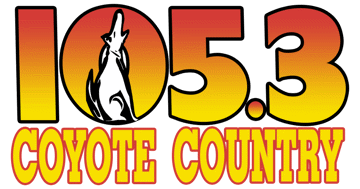University Beef: NU program takes farm-to-table to a new level
-2024-10-03-07-44-23.jpg?width=610)
KEARNEY – From pasture to plate, a new University of Nebraska program gives students a true taste of the state’s No. 1 industry.
The University of Nebraska at Kearney, Nebraska College of Technical Agriculture and University of Nebraska-Lincoln are partnering to launch University Beef, an innovative initiative that combines hands-on learning with high-quality dining.
“Farm-to-table is a big movement across the country right now. People want to know where their food comes from, so there’s a lot of interest in eating locally raised meat,” said Larry Gossen, dean of the Nebraska College of Technical Agriculture (NCTA). “We’re taking that trend to a whole new level by engaging students in the entire process.”
The University Beef program starts in southwest Nebraska, where NCTA students raise and manage about 60 head of cattle at the Curtis campus and a 2,100-acre ranch located west of town. Those animals are cared for at an NCTA livestock working facility and finished at a small feedlot on campus.
“We want students to see the beef industry from the beginning to the end,” Gossen explained. “They’re involved every step of the way, from breeding and calving to grazing and feeding the cattle.”
The final product was the only missing piece. Previously, NCTA sold its cattle to a large company such as Tyson when it was time for them to be processed.
That’s no longer the case.
Now, the University Beef partnership brings those cattle to Lincoln, where UNL students harvest and process the meat at the Department of Animal Science’s Loeffel Meat Lab, a U.S. Department of Agriculture-inspected facility.
From there, the packaged beef is transported to Kearney and transformed into delicious dishes prepared by Sodexo, the dining services provider at UNK.
Michael Christen, director of business services at UNK, called the collaboration a win-win.
“For us, it’s really important to showcase the state’s agricultural roots and connect that to our dining operations,” said Christen, whose family owns and operates a cattle ranch in central Nebraska. “There’s a whole brand behind Nebraska beef, and we’re going one step further by highlighting the student experience. It’s student-raised beef. It’s student-processed. And it’s served to students.”
It’s also really good.
“We’re getting a higher-quality beef from Curtis that increases the value for students and improves their dining experience,” Christen noted. “Our chefs can tell when they’re using that beef. It has more flavor. It cooks better. And it tastes better. So, the more we can utilize that program, the better.”
University Beef will be formally introduced this week, starting with a steak dinner served to the Board of Regents on Thursday evening. A campus cookout for UNK students is planned for next week as part of the homecoming festivities.
Moving forward, the Nebraska-raised beef will be incorporated into the regular dining menu at UNK, as well as Sodexo’s catering services. Branding elements developed by two different UNK marketing classes and fine-tuned by UNK Communications and Marketing will ensure people know where this meat came from.
“It’s great to see the student involvement and know we could enhance their educational experience through this program,” Christen said.
Gossen agrees.
“It’s all about the students,” he said. “This gives us a chance to expand their education so they can see beef production all the way from conception to harvest to consumption. It’s also a great way to demonstrate how three campuses can work together to create a product that I think will save the university some money.”
Along with the university partners, the program is supported by Kearney-based Cash-Wa Distributing, which transports the finished product from UNL to UNK.
Because of production and storage limitations, UNK Dining Services will continue to purchase beef from outside the program to fulfill campus needs. However, both Christen and Gossen see opportunities for future growth, whether that’s increasing the number of cattle dedicated to the program or introducing pork to the mix.
“We’ll do everything we can to continue adding value and quality to the student meal plan and our catering services,” Christen said.
“We’d like to get as many cattle as possible into the university system,” Gossen noted. “We’ve even talked about finding some freezer space on our own campus so we can serve University Beef here.”
